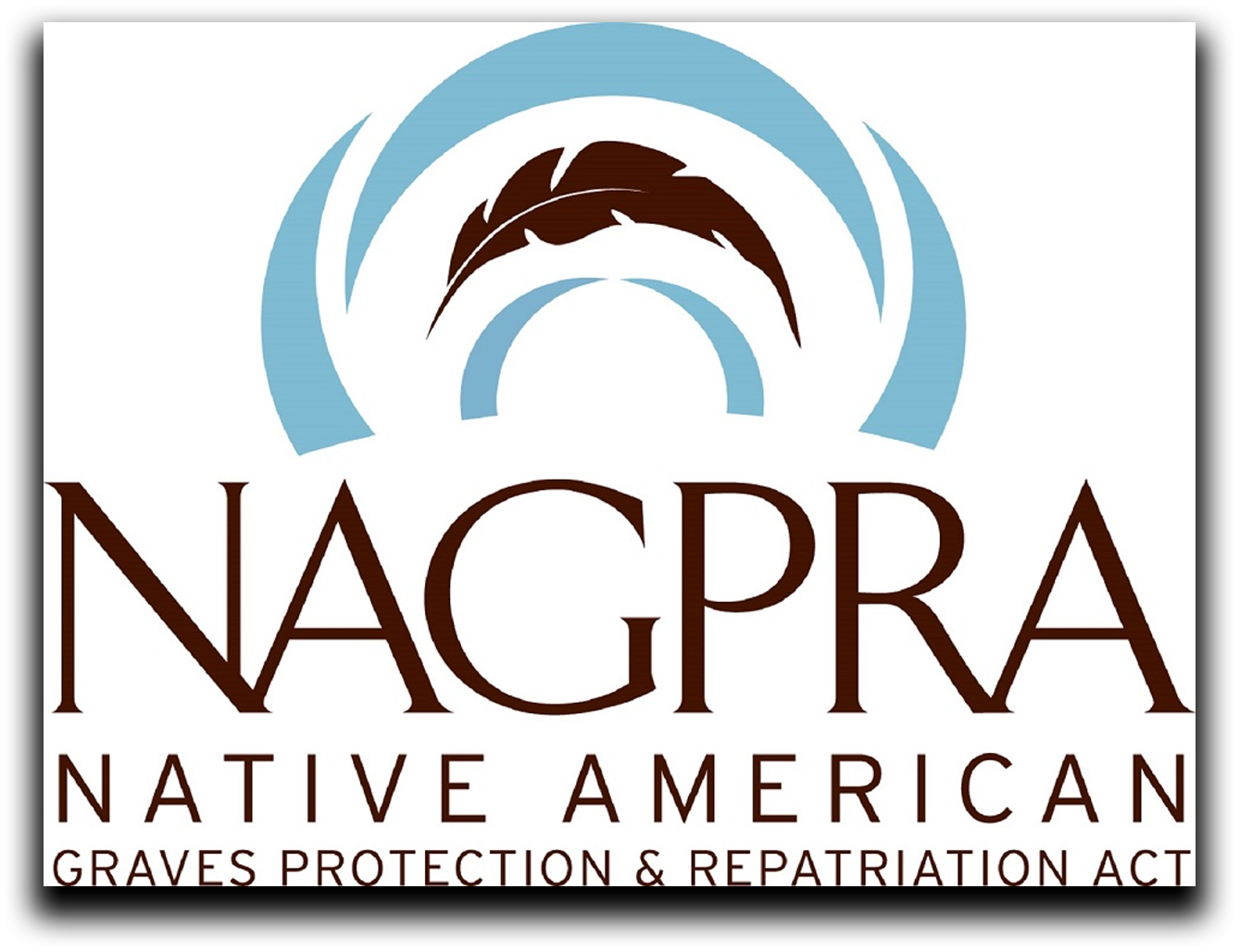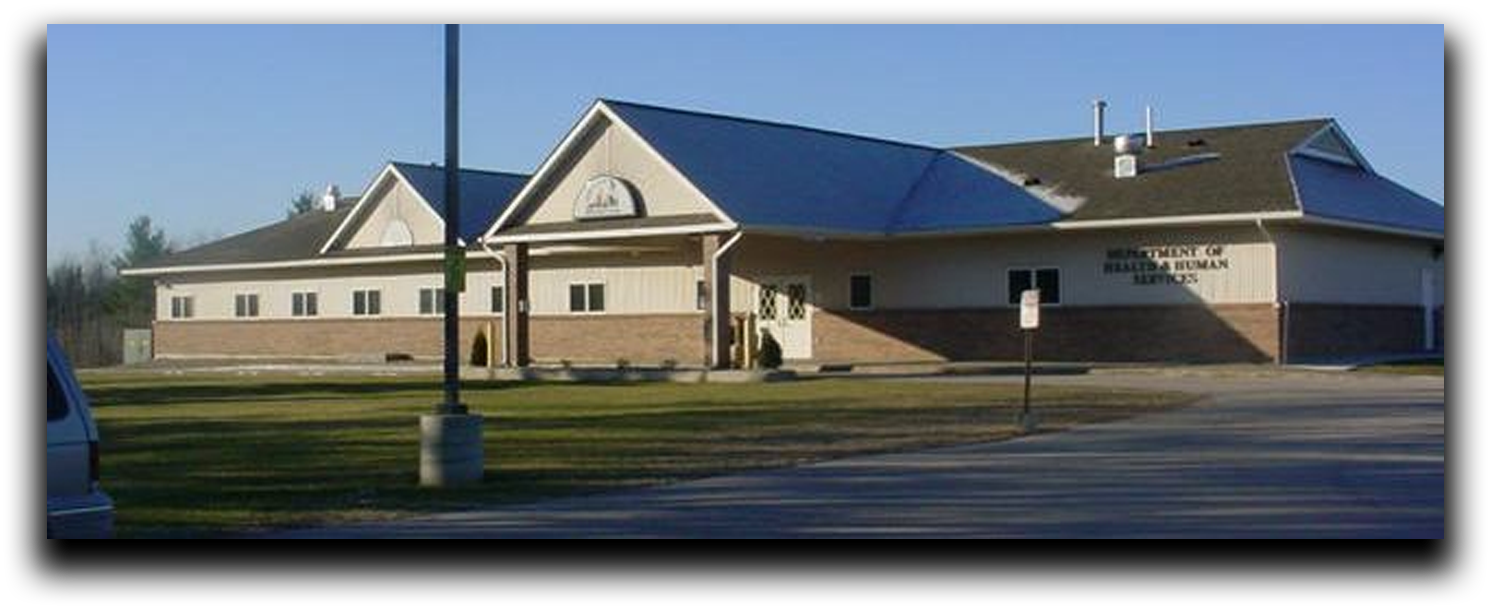1966
Before 1966, Hannahville Indian community was without electricity. The Lights for Christmas project fixes that when in December, linemen from the Alger-Delta Cooperative Electric Association ran electrical lines from Harris onto the Hannahville reservation. The installation is completed on December 23rd, just in time for Christmas.
1968
The Indian Civil Rights Act is passed. This act extends many of the provisions in the Bill of Rights to tribal citizens who live within the jurisdiction of tribal governments.
Meanwhile, in the state of Michigan, the Anishinaabe form the Inter-Tribal Council of Michigan. While this group now contains nearly all Anishinaabe tribes in the state, it was founded by the Bay Mills Indian Community, Hannahville Indian Community, Keweenaw Bay Indian Community, and the Saginaw Chippewa Tribe.

1971
- The Midwest Capuchin Province of St. Joseph transfers the land and buildings that were previously the sight of St. Joseph Orphanage and School in Assinins back to the Keweenaw Bay Indian Community. The KBIC operates the facility as a tribal center for several years.
- Native students at Northern Michigan University develop Nishnawbe News which lasts in this form until 1983 when it is forced to retire due to funding cutbacks. Within two years, the newspaper becomes the second largest Native American publication in North America.

1972
- The leaders of the Original Bands of Chippewa Indians travel to Washington DC and submit historical findings to the Secretary of the Interior who finally grants the tribe federal status.
- The Indian Education Act is passed. The Act provides funding for all Native - American children who attend public school.
1973
- In April, the Michigan State Board of Education creates an eleven member committee known as the Indian Education Advisory Council. The purpose of the council is to advise the state on how to improve public education for Indigenous Youth.
- The Indian Self-Determination and Educational Assistance Act of 1973 is passed. This gives tribes the right to administer federal assistance programs which were all previously provided by the Departments of Interior, Health, Education, and Welfare.
1974
- The Indian Finance Act is passed. This authorizes federal grants and loans to tribes that reorganized after termination. These grants are often used to promote economic development. The act also creates the Indian Business Development Program.
- Evidence of the forced sterilization of Indigenous women in America is discovered by Dr. Connie Pinkerton. Between the years of 1973 and 1976, at least 3,406 Native women ages 15 to 45 are affected by this practice.

1975
- Congress passes the Indian Self-Determination and Education Assistance Act. This allows for a tribe to contract for control of a BIA school.
- The Keweenaw Bay Ojibwa Community College is chartered by the Keweenaw Bay Indian Community. This is the first tribally controlled community college in the state of Michigan.
- Now going by the name Sault Ste. Marie Tribe of Chippewa Indians, the Original Bands of Chippewa Indians adopt a tribal Constitution.

1976
- Representative Jackie Vaughn introduces The Waiver of Tuition for North American Indians, Act 174 of 1975. Today this act is known as the Michigan Indian Tuition Waiver. According to former Michigan Governor William Milliken the act “provides a segment of our society with an opportunity and recognizes that the state might not have fulfilled its obligation in the past….” The first tribally controlled school in the state of Michigan, Nah Tah Wahsh School, is opened in Hannahville.
- The case People vs. Le Blanc further protects tribal fishing and hunting rights based on the treaty of 1836. The defendant, A. B. Leblanc, is a member of the Bay Mills Indian community.

1978
- The Michigan Indian Tuition Waiver is modified to reduce residency requirements from 18 to 12 months. The blood quantum requirement is also reduced from one half to one quarter.
- Nationwide, Congress passes multiple acts, including the Education Amendments Act which contains a policy for Indigenous control of Indigenous education, the Indian Child Welfare Act, which articulates the right of tribes in determining custody status of Indigenous children, and the Tribally Controlled Community Colleges Assistance Act. The American Indian Religious Freedom Act of 1978 (protects the rights of Native Americans to exercise their traditional religions by ensuring access to sites, use and possession of sacred objects, and the freedom to worship through ceremonials and traditional rites.

1981
- The US Department of Education provides funds for the Bay Mills Indian Community to begin a vocational education program.
- Hannahville opens its Bingo Hall, the precursor to the Island Resort and Casino. Prior to the halls opening, Bingo was typically held at the baseball field with people playing from inside their cars. The money from Bingo is used for the baseball team.
1984
By the start of the Self-Determination Era, most of the boarding schools had closed down, however, a few remained open. The last boarding school in Michigan, Holy Childhood of Jesus School, reportedly closes in 1984. It remains open as a day school as well as a daycare center and thrift shop until 1993. However, while this is the date that is widely reported, some students say that they continued to attend the school up until 1986. It is possible that 1984 was simply the year that the federal government stopped funding the school, and that it continued operating as a boarding school for a few years.

- The Bay Mills Community College receives a tribal charter from the Bay Mills Indian Community.
- The Inter-Tribal Council of Michigan is awarded funding to provide Head Start and early Head Start programs for the Saginaw Chippewa Indian Tribe, Hannahville Indian Community, and Keweenaw Bay Indian Community.
- Fred Dakota, a member of the Keweenaw Bay Indian Tribe, challenges Michigan’s right to regulate gambling by opening a casino named the Pines. Shortly after, the Bay Mills Indian Band opened the first tribal-sanctioned casino on July 4th in Brimley. Kewadin Casinos are also founded.

1985
The Hannahville band of Potawatomi, Keweenaw Bay Indian Community, and Sault Ste. Marie Band of Chippewa all open casinos.
1988
The Lac Vieux Desert Band of Lake Superior Chippewa Indians Act is signed into law on September 8th by President Reagan. This act recognizes the Lac Vieux Desert Band of Lake Superior Chippewa as separate from the other reservations that are part of the Keweenaw Bay Indian Community.

1990
- The Native American Graves Protection and Repatriation Act is passed in an attempt to stop the theft of cultural artifacts and human remains by universities, museums, and collectors. The law is not perfect, however, and has no provisions for the protection of unmarked graves or a way to require private landowners to cooperate with repatriation.
- FACE, or Family And Child Education, is initiated. The program is designed as a family literacy program and has the goals of supporting caregivers in children's education, strengthening family-school-community connections, and promoting lifelong learning as well as supporting and celebrating the unique cultural and linguistic diversity of each Indigenous American community.

1992
Glen Bressette begins to lead a movement to gain federal tribal recognition for the native community in Marquette.

1993
The Michigan Indian Tuition Waiver is amended to extend reimbursement to tribally chartered community colleges in the State.
1994
Northern Michigan University charters two tribally ran schools. These are Nah Tah Wahsh School in Hannahville and the newly opened Bahweting Sault Ojibwa Elementary School in Sault Ste. Marie.
The Tribal Self Governance Act is passed. This act grants tribes a lump sum for services provided. The tribes decide for themselves on how the funds are to be allocated.
The Keweenaw Bay Indian Community opens the Ojibwa Casino in Harvey, a suburb of Marquette.

1995
- Bay Mills Indian Community opens Bay Mills Resort and Casino in Brimley.
- In August, a political dispute leads to a group of disenfranchised members of the Keweenaw Bay Indian Community taking over the tribal center located at the former St. Joseph Home.
- Nah Tah Wahsh in Hannahville becomes a charter school.
1996
The Center for Native American Studies at Northern Michigan University is officially approved by the Board of Control in December. At this time, Northern offers several courses around Native American topics including Native American Art and Architecture of the Great Lakes, Native People of North America, Indians of the Western Great Lakes, Traditional Oral Literatures: Selected Native American Cultures, Native American Literature: 20th Century, Native American History, Latin American Indian History, World Music, Elementary Ojibwa Language, and Native American Experience.

1997
- The Health Center in Hannahville opens.
- The Keweenaw Bay Indian Community demolishes the former St. Joseph Home in Assinins.
- Holy Childhood removes student remains found at the old Holy Childhood boarding school to the Holy Childhood of Jesus cemetery. They also place a white cross on the former school grounds in honor of the dead children.

2002
The Anishinaabe News, formerly Nishinabe News, returns to Northern Michigan University as an online only paper. It eventually changes back to a hard copy version a few years later.
2006
Don Chosa develops a program to re-introduce wild rice to local streams and lakes. The wild rice habitats were previously damaged by the damming of rivers and excessive logging.

2007
In the fall, Holy Childhood of Jesus School in Harbor Springs is demolished. This occasion left mixed feelings, as some people are happy to see the building go and others believe it should have stayed as a reminder of its legacy. Veronica Pasfield sums up this best when she says, “When these boarding schools are taken down, at the very least what is lost is the daily visual reminder of their legacy. By today’s standards, many of these schools are crime scenes. They are also sacred sites in a sense, in the way that a war camp or a battlefield is a sacred site.” Today the site is a daycare facility and parish.
2008
- Sweetgrass golf course in Hannahville opens.
- Uniting Three Fires Against Violence is formed. It is a Michigan domestic violence and sexual assault coalition that serves all the tribes located in the state. Their mission is to support these tribes in promoting the social change necessary to address the disproportionate rates of violence.

2009
The Bay Mills Community College Board of Trustees issue a contract to the Bay Mills Ojibwe Charter School.
2010
In July, the MDCR establish new eligibility criteria for the Michigan Indian Tuition Waiver. Currently, recipients must be an enrolled member of a United States federally recognized tribe as certified by the Tribal Enrollment Department.
2011
The Michigan State Board of Education adopts “Standard for the Preparation of Teachers of Anishinaabemowin Language and Culture.”
2013
- Hannahville’s Youth Services Department begins the aquaponics program. This program springs into a local business known as AquaTerra which produces an assortment of lettuce, herbs, tomatoes, and cucumbers.
- Northern Michigan University’s Center for Native American Studies begins to offer an American Indian Education Certification program. This program is endorsed by the Tribal Education Departments National Assembly.

2015
- Congress passes the Every Student Succeeds Act which includes negotiated rulemaking, tribal consultation, and native language immersion.
- Dr. Marin Reinhardt of Northern Michigan University becomes the first person to be tenured in Native American Studies at a Michigan public university.
- The Lac Vieux Desert Health Center opens in August. It is available for use to the entire Western Upper Peninsula.
2016
- Northern Michigan University becomes the first university in Michigan to be approved for a Native American Studies Major.
- The Bureau of Indian Education at this time is still operating 50 Native American boarding schools nationally. Unlike the boarding schools of the past, modern boarding schools focus on preservation, not assimilation.
- The Lac Vieux Desert Band of Lake Superior Chippewa establish Big Picture Loans.
- Native American Cultural History Trail is installed on Mackinac during the summer. This trail contains interpretive panels drafted by Eric Hemenway, the director of Archives and Records for the Little Traverse Bay Band of Odawa Indians. These six signs tell stories of the Indigenous people of the Straits of Mackinac.

2017
Chris Gordon becomes the first teacher in the state of Michigan to be endorsed to teach a K-12 Foreign Language-Native class. He teaches Anishinaabemowin, the native language of the Ojibwe people, at the Joseph K. Lumsden Bahweting Anishinaabe School in Sault Ste. Marie.
2018
- Mount Pleasant Indian Industrial School is listed on the National register of Historic Places. The land and school is now owned by the Saginaw Chippewa Tribe. Only 7 buildings currently remain standing. There are on-going excavations which have uncovered several other buildings. The hope is that these excavations will tell the story of the daily lives of those who lived at Mount Pleasant and other boarding schools.
- Of the 66,516 people living in Marquette County, 13,350 are Indigenous American, yet they do not have their own government. Instead, they are connected to the Keweenaw Bay Indian Community, which is located sixty miles away from Marquette.
- Hannahville opens the tribes second golf course, Sage Run.
2019
- Bay Mills Indian Community adopts an ordinance allowing individuals to cultivate, possess, and use marijuana on April 8th. They are the first tribe in Michigan to do so.
- On Indigenous Peoples Day, several students, faculty, and community members, protest against Northern Michigan University’s decision not to recognize Indigenous Peoples’ Day.
2020
- Northern Michigan University and Bay Mills Community College partner to offer a college/university path for students to receive a State of Michigan certification as K-12 teachers in Anishinaabemowin.
- In November, Governor Whitmer orders Enbridge to cease running crude oil through line 5, as well as for Michigan's Department of Natural Resources to revoke and terminate the company’s easement. Enbridge, however, insists the Governor Whitmer has no authority to enforce said shutdown.
- Northern Michigan University’s Board of Trustees approves the recognition of Indigenous Peoples’ Day.
2021
- Former Congresswoman Deb Haaland is confirmed as Secretary of the Interior, she is a member of the Laguna Pueblo tribe and the first Native American member of any President’s Cabinet. As Secretary she ordered an investigation on Indian Boarding Schools here in the United States after reports of the recovery of two mass graves at Canadian Reservation Schools.
- Bryan Newland, former Chairperson of Bay Mills Indian Community, is confirmed to be the assistant secretary of Indian Affairs, which is the department’s highest-ranking Senate confirmed position.

